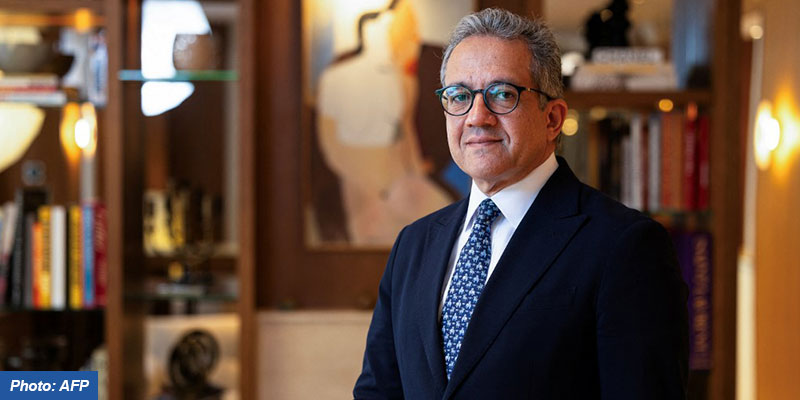- World
- Nov 12
Khaled El-Enany elected as new UNESCO chief
• The General Conference of UNESCO elected Egypt’s Khaled El-Enany as Director-General of the Organisation, with 172 votes out of a total of 174 ballots.
• Audrey Azoulay from France was appointed to the office of Director-General by the General Conference at its 39th session on November 10, 2017. Her appointment was renewed by the General Conference at its 41st session on November 9, 2021, for a second term, which will expire on November 14.
Who is Khaled El-Enany?
• Khaled Ahmed El-Enany Ali Ezz, born in 1971, is an Egyptologist and professor of Egyptology at Helwan University, where he has been teaching for over 30 years.
• He has served as Vice Dean of the Faculty of Tourism and Hospitality, Director of the Open Learning Center, and Head of the Tour Guide Department.
• In November 2024, he was appointed Special Ambassador for Cultural Tourism by the World Tourism Organisation and, more recently, patron of the African World Heritage Fund. He holds several international distinctions.
• Khaled El-Enany is the 12th Director-General of UNESCO and will have a four-year term.
• He is the first Director-General from an Arab country, and the second from Africa to hold this position since Amadou Mahtar Mbow (1974-1987) from Senegal.
What is UNESCO?
• The United Nations Educational, Scientific and Cultural Organisation (UNESCO) was established on November 16, 1945.
• UNESCO has 194 Member States and is governed by the General Conference and the Executive Board.
• The Secretariat, headed by the Director-General, implements the decisions of these two bodies. Its Director-General is Audrey Azoulay.
• Headquartered in Paris, UNESCO has offices in 54 countries and employs over 2,300 people.
• UNESCO’s mission is to contribute to the building of a culture of peace, the eradication of poverty, sustainable development and intercultural dialogue through education, the sciences, culture, communication and information.
• It contributes to peace and security by promoting international cooperation in education, sciences, culture, communication and information.
• UNESCO promotes knowledge sharing and the free flow of ideas to accelerate mutual understanding and a more perfect knowledge of each other’s lives.
• UNESCO’s programmes contribute to the achievement of the Sustainable Development Goals defined in the 2030 Agenda, adopted by the UN General Assembly in 2015.
• UNESCO oversees more than 2,000 World Heritage sites, Biosphere Reserves and Global Geoparks; networks of Creative, Learning, Inclusive and Sustainable Cities; and over 13,000 associated schools, university chairs, training and research institutions, with a global network of 200 National Commissions.


